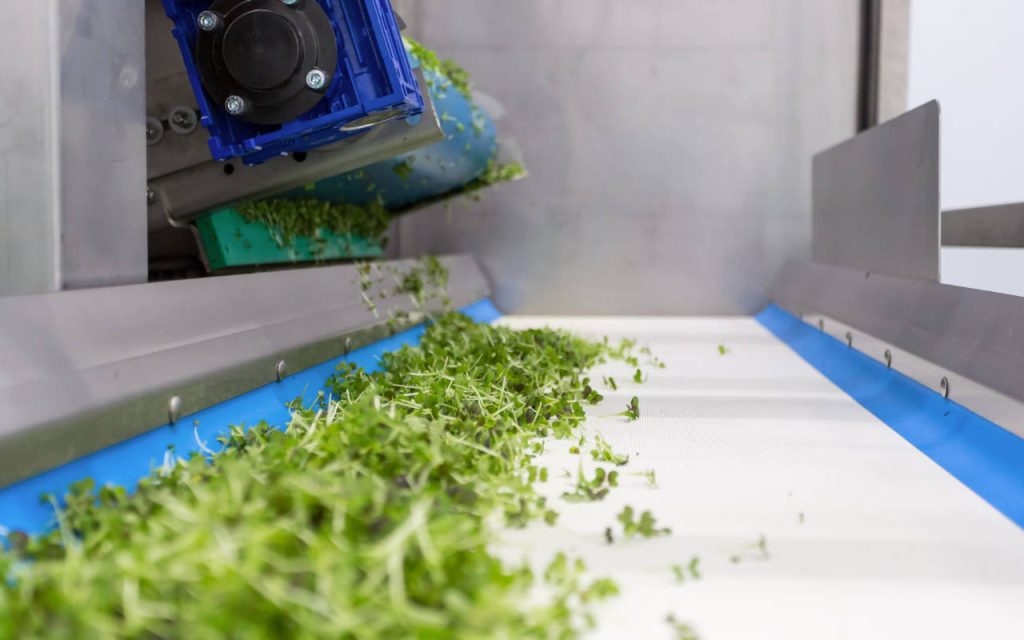Whenever a business reaches a certain size, it begins to rely on automation. And eventually, automation becomes a cornerstone of its success. It happens in all sorts of industries – and with the rapid rise of artificial intelligence, it’ll soon be prevalent everywhere; in sectors as diverse as accounting and clerical, to farming and factory management.
There are benefits and pitfalls. But the pluses always outweigh the negatives, and businesses continue to invest in automation heavily for this reason, adapting, adjusting and iterating it until it’s perfect. In manufacturing sectors – food, automaking, medical and beyond – production is largely automated, and things have been this way for almost a century already.
Read more: How Automation Changed Packaging (And Humans) Forever
And in many more industries, packaging is more often than not fully automated. Even if production isn’t. There are so many reasons for this, mostly financial – but the benefits continue beyond the bottom line.
In packaging automation, there is one type of system that beats them all… That is, if you can afford it, and if your product is compatible; the slightly unfortunately named FFS – or form fill and seal system.
For many, this is the last packaging system they’ll ever need.

What is a form fill and seal machine and how does it work?
A form fill and seal (FFS) machine is a packaging machine that automates the entire process of forming a bag or pouch, filling it with product and then sealing it. The resulting packaging is ready for entry into the logistics system, ready for storage – and ready for sale. FFS can be fully integrated into the production line, streamlining operations down to the most efficient version possible.
Let’s dive into how it works:
Forming
The FFS machine begins by unwinding a roll of flat, flexible packaging material – polythene machine film. Specialist, custom blended form fill and seal film can be developed for specific applications and machine tolerances, tuned to the product and FFS machine.
The film passes through a forming collar, where it is shaped and partially sealed into a tube or a pouch (depending on the design of the packaging). At this point, it’s ready to be filled.
Filling
The formed pouch moves to the filling station, where the product is deposited into the open pouch. This can be achieved through various methods, including auger fillers, volumetric fillers or liquid pumps, depending on the nature of the product.
Sealing
Once filled, the open end (or ends) need to be sealed to contain the product securely. The sealing process involves heat, pressure, or a combination of both. Easy open, or tear line packaging can also be developed from this.
Cutting
After sealing, the machine cuts the continuous tube of material into individual packages. The cutting mechanism may be a rotary knife or another cutting device, or even integrated into the sealing stage, depending on the machine being used.
The completed and sealed packages are now ready to go on to the next phase of their journey – labelling, batch coding or boxing, before distribution. If a printed and coloured polythene FFS film is being used, labelling can be skipped altogether.
The benefits of adopting a fully automated packaging system
FFS machines offer significant performance advantages in terms of efficiency, speed and consistency in the packaging process. They are versatile and can handle a variety of products and packaging formats, making them the preferred choice for industries with the highest production volumes – like food, pharmaceutical and household consumer goods.
Perfecting your packaging with a fully automated, bespoke system is a significant investment – but one that pays for itself many times over in a high volume industry. With printing and custom branding, additional savings can be made on labelling costs, too.
Alternatives to FFS
For businesses that turn around lower volumes of same-sized goods, there are still many automation and semi-auto options available for packaging – like autobags on a roll. These are basically pre opened bags on a roll, custom made to your products’ dimensions, with printing and labelling, gusseting, plus any blend requirements built-in.
While not quite as elegant or efficient as an FFS machine, auto bags are super simple, very reliable – and above all, have a far lower barrier to entry. This makes them an ideal choice for aspirational and growing manufacturers who haven’t quite arrived at the level to justify an FFS machine, but are still in need of an automated packaging system.
Industry leading polythene machine films
Looking for custom-blended, printable polythene form fill and seal film? Call us on 01773 820415 to find out how we can help. Ready to order? Get a quote now.


